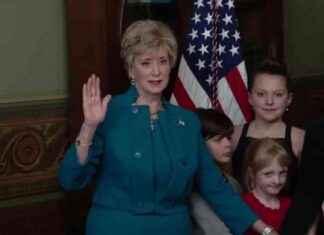Former Japanese Prime Minister Shinzo Abe, 67, suffered a cardiorespiratory arrest after being shot this Friday morning (local time) while giving a speech during an election event in Nara, western Japan.
Abe, who was the longest-serving prime minister in charge of the country until his resignation in 2020, was taken by ambulance and later by helicopter to a hospital after the attack and the health services are trying to recover his vital signs, according to said the police and the city’s health services.
According to the state channel NHK, the Japanese police arrested a 41-year-old Nara resident named Tetsuya Yamagami as the alleged perpetrator of the attack. According to sources from the Japanese Ministry of Defense, the alleged assailant worked in the naval branch of the Self-Defense Forces, in charge of defending the archipelago, for three years until 2005, and it seems that he used a homemade weapon to commit the attack, perhaps and how they collect the images captured during the event.
Eyewitnesses affirm that two shots were heard at the scene and that Abe then collapsed to the ground, while some citizens captured and uploaded to social networks images of the politician being treated on the ground with blood stains on his chest. .
The event took place around 11:30 local time this Friday (2:30 GMT) while Abe was giving a campaign speech near a Nara train station for the by-elections to the Upper House of Parliament that are being held this Sunday. . In this appointment, the Democratic Liberal Party (PLD) of Abe and the current prime minister, Fumio Kishida, hopes to revalidate its large majority.
Election rallies are usually held in Japan in the middle of the street and with few security measures due to the low rate of crime and attacks with firearms typical of the Asian country.
Japanese Chief Cabinet Secretary Hirokazu Matsuno has described the attack as a “barbaric act” that “cannot be tolerated”.
For his part, the current prime minister, who was in turn on an electoral tour, has canceled his planned events for today and has returned to Tokyo. Before the media, he confirmed that Abe is in “serious condition” and that the motives for the attack are still unknown.
“It is not yet known what is behind this incident, but this is a barbaric act at a time of elections, which are the basis of democracy, so we can never forgive it and we condemn it with the greatest possible force. “said the visibly excited prime minister.
The news also provoked initial reactions such as that of the US ambassador to Japan, Rahm Emanuel, who said he felt “sad and dismayed” by the attack. “Abe has been an outstanding leader of Japan and a staunch ally of the United States. Our government and the American people pray for the well-being of him, his family, and the Japanese people,” he said in a statement.
Grandson of a prime minister and son of a former foreign minister, Abe became the youngest president in the history of the Japanese country in 2006, but had to retire just a year later affected by ulcerative colitis.
After his return to the political arena, in 2012 he achieved a second term. He was later able to revalidate the position two more times (2014 and 2017, the latter achieving a large majority), a feat in a country accustomed to changing its leader every few months.
During his government, he was in charge of supervising the recovery of Japan after the triple disaster of 2011 (earthquake, tsunami and Fukushima nuclear disaster), promoting the recovery of the health of the economy through his “Abenomics” program -which combines massive monetary stimuli, increased public spending and significant economic reforms-, winning the favor of a president as unpredictable as Donald Trump or the organization of the Olympic Games that should have been held in Tokyo in 2020 and that the pandemic forced to delay a year .
But as happened to him in his first term, in August 2020 he announced his resignation due to ulcerative colitis that he has been dragging for years. “My health is not adequate, and poor health can lead to wrong political decisions,” he acknowledged then. His position was filled by his right-hand man, Yoshihide Suga, who was replaced a year later by the current leader, Fumio Kishida.








